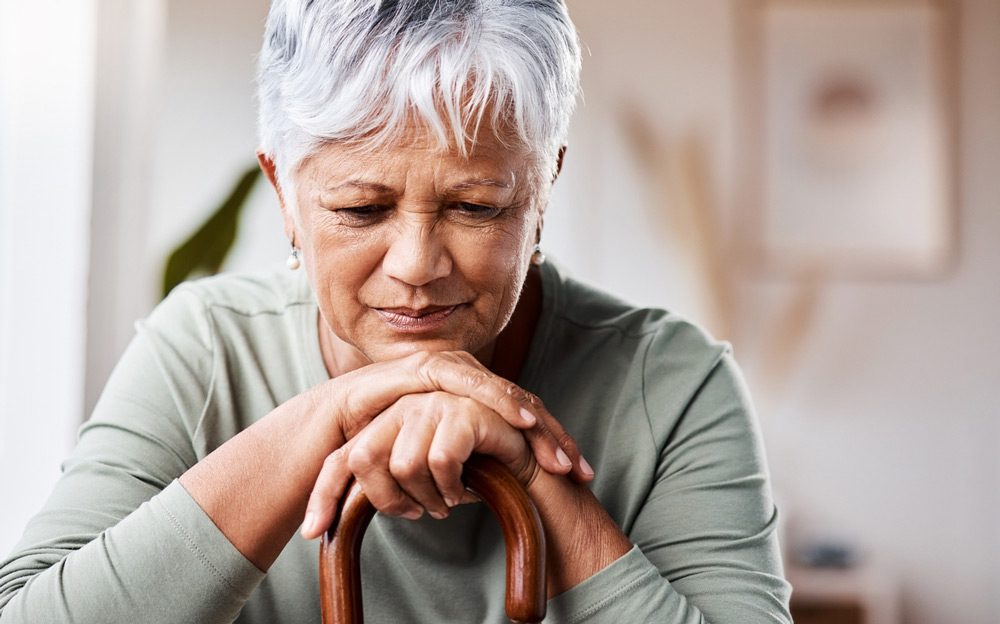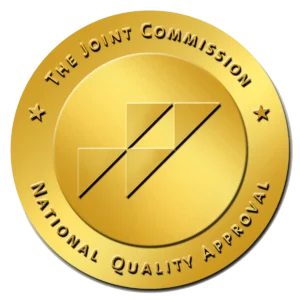Watching our parents age can be difficult. Helping parents who are of advanced age manage their mental health, can provide an extra layer of challenges and stress for adult children. At The Pavilion, in Williamsburg, Virginia, our Senior Adult Program provides short-term care for older adults who require crisis stabilization. Our team can work with their families to provide the support and education they may need to care for their aging loved ones.
Common Psychiatric Disorders Among Older Adults
The most common mental health struggles that seniors face include:
- Depression
- Dementia
- Anxiety
- Substance use disorders
- Suicidal ideation
Barriers to Mental Health Treatment
It is estimated that around 14 percent of seniors meet the criteria for a mental health disorder, however, fewer than half of all seniors who have mental health concerns receive treatment. This may place them at increased risk for suicide. Several factors may contribute to this lack of care, such as:
- Isolation from other people making it easy for symptoms to go undetected
- Attributing mental health symptoms to the aging process, for example treating the severe memory and skill loss associated with dementia as a normal part of getting older, or assuming that poor physical health is normal and does not cause older people distress.
- Inadequate financial resources to get help
- Transportation barriers
- Inadequate numbers of geriatric mental health providers
- Generational attitudes toward mental healthcare
Risk Factors for Mental Illness Among Older Adults
If your older relative has experienced any of the following, they may be more likely to struggle with their mental health:
- Loss such as the death of a spouse or other important people in their life, decreased independence, reduced sense of purpose due to children leaving home or retiring from work
- Isolation or loneliness
- Ageism that causes them to feel more like a burden than a blessing to others
- Abuse such as neglect, physical, financial, sexual, verbal, or psychological
- Severe or chronic medical conditions that cause them pain, limit their mobility, and cause communication issues
Signs of Mental Illness in Seniors
If you see these signs in your older loved one, it is important not to simply write it off as normal aging, as these can be red flags for mental illness:
- Prolonged grief or sadness
- Expressing suicidal thoughts
- Confusion, hallucinations, delusions, or disordered thinking
- Nonadherence to prescribed medications
- Aggression, inappropriate comments, or agitation
- Noticeable changes in cognitive functioning
- Increased use of alcohol or other substances
- Changes in sleeping or eating patterns or personal appearance and hygiene
- Increased worry or stress
- Lack of positive emotions
What to Do When An Older Adult is Struggling with Mental Illness
It is important to remember that an older adult is someone with a lifetime of experience and knowledge, who has opinions about the care they receive. Taking a delicate approach to helping them may make it easier to gain their cooperation:
- Ask questions. Ask questions such as: How are you feeling? Is anything making you feel anxious or sad? Are you feeling more stressed or tired lately? Have you had any thoughts of ending your life? Be sure to listen carefully to the answers.
- Involve their doctor and pharmacist. It is possible that there is a medical or medication cause for their symptoms and ensuring that the professionals supporting their health have complete information may make it easier to identify these causes and identify gaps in care.
- Get an evaluation. If there is no clear medical cause, a mental health provider with expertise in treating older adults may be able to help.
While it may be necessary for younger family members to assist in ensuring they receive mental healthcare, this should be done with empathy and compassion, so that the person needing care continues to have as much control over their treatment as they can safely handle.
Managing Social Determinants of Health
It can also be helpful for loved ones to work with their older family member to ensure that they have adequate protective factors in place to support their mental health. This includes things like:
- Adequate financial resources
- Safe, stable, accessible housing
- Access to transportation and buildings
- Social connection
- Adequate nutrition
- Protection from abuse
- An active, stimulating lifestyle
- A sense of purpose and meaning in their life
At The Pavilion, we provide client-centered, acute care for adults and seniors who are struggling with severe psychiatric symptoms. The treatment we offer is designed to help patients regain the ability to return to their communities and live full, meaningful lives.






